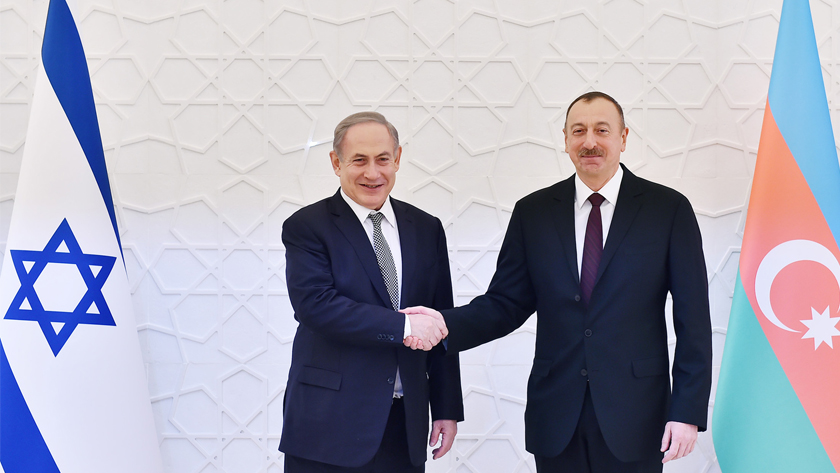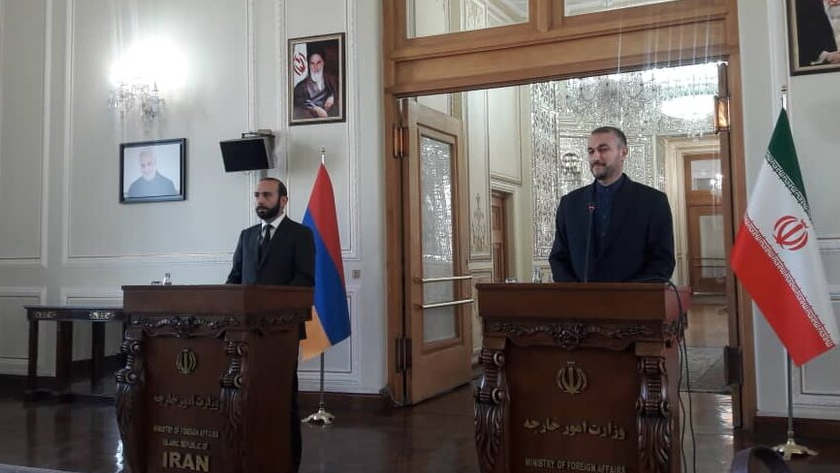Iran Press/ commentary: It is obvious that in the current situation if the officials of Tehran and Baku are unable to control the emotional situation and some foreign interference in each other's internal affairs, hostile policies will overshadow the relations between the two neighboring countries.
The experience of recent years has proved this fact, despite the interest and desire of the nations of the two Muslim and neighboring countries to expand mutual relations, some foreign interventions can have a negative impact on the positive and constructive process of bilateral relations. However, in recent days, some events centered on the enemies' intervention in the growing relations between Tehran and Baku, have provided the grounds for the destruction of relations between the two neighboring countries, and these relations have led to the destruction as much as possible.

Related News:
Leader: Regional issues must be resolved without foreign intervention
In the meantime, there is no doubt that the misconduct of some officials of the Baku government and the statements of the officials of the Republic of Azerbaijan in recent days have greatly contributed to this process. Government officials of Ilham Aliyev administration, the President of Azerbaijan, recently revealed the contributions of foreigners to Azerbaijan during the second war in Karabakh and the President of Azerbaijan recently has hailed the assistance of the Israeli regime in the Nagorno-Karabakh second war.
This part of the President of Azerbaijan's actions has been widely covered in the regional and global media.
The interesting point in this context is the Israeli and American media's criticism of the recent inappropriate behavior of Ilham Aliyev. For example, Richard Kauzlarich ambassador of America in Baku and expert in political affairs, described the recent action of the President of Azerbaijan Ilham Aliyev in taking photos and videos with the Israeli UAV Harop and stroking his hand on this UAV as incorrect and clumsy and as "throwing a stick in a beehive" and said that if the developments in this region worsen, what country will support the Republic of Azerbaijan? "I do not think Turkey wants to take part in the war. I have doubts about Russia as well. The United States is also busy. The Republic of Azerbaijan is currently in a difficult situation."
Apart from the criticism of the so-called allies of the Azerbaijan government's recent provocative behaviors, it is worth mentioning that Tehran's restraint has so far prevented the tensions between the two neighboring countries. In any case, the issue of foreign aid to the Republic of Azerbaijan to win the Second Karabakh War and to have military bases in the lands north of Aras has met with a reaction from Iranian officials.

Related News:
Iran does not tolerate Israel's presence near its borders, Amir-Abdollahian says
In this regard, Hossein Amir-Abdollahian, Minister of Foreign Affairs of the Islamic Republic of Iran said: "Tehran will never tolerate the military presence of the Zionist regime near the borders of Iran and its subversive actions in order to bring geopolitical changes in the region and the borders of the Republic of Azerbaijan and Armenia."
In this regard, it should be said that following the liberation of the territories of the Republic of Azerbaijan, unpleasant events have occurred in the South Caucasus region. Among them are the Israeli movements in the South Caucasus and the territories of the Republic of Azerbaijan.
Taking advantage of the current events, the Israeli regime, by seizing control of some parts of the Republic of Azerbaijan, has made a redoubled effort to get as close as possible to the borders of Iran.
In this context, Farid Shafiov, Director of the Center of International Relations in Presidential Office of Azerbaijan, and an Azeri expert in political and security affairs, noted: "In 2005 , Iran and the Republic of Azerbaijan agreed under an agreement not to allow a third party to use the territories of the two countries against the other."
Despite this agreement, it is not clear why Baku government officials have repeatedly commented on receiving foreign aid for the victory of the Republic of Azerbaijan in the Second Nagorno-Karabakh War and the issue of the secret establishment of Israeli military bases in the territory of the Republic of Azerbaijan.
In addition to signing the 2005 agreement, Tehran and Baku officials have always emphasized the fact that they will not allow foreigners to disrupt the way paved for the expansion of cooperation between the two neighboring countries. In particular, Iran and the Republic of Azerbaijan have important projects on the agenda, such as the construction and operation of the North-South International Corridor and other similar projects.
In these circumstances, there is no doubt that blocking the commute of Iranian trucks to Armenia via a joint road between the Republic of Azerbaijan and Armenia is considered a completely secondary issue that can be solved.
214/221
Read More:
Neighborhood policy depends on spirit of goodwill: President Raisi
Iran ready to cooperate in reconstruction of liberated areas of Nagorno-Karabakh

